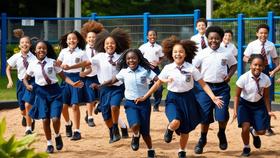Why teach boys in a single-sex setting? Aren't boys' schools archaic and out of touch? Aren't boys more likely to succeed in a coeducational setting? What are the advantages of educating boys in a single-sex setting? The answers to these questions and many more are contradictory and subjective. Furthermore, the amount of research into boys' education is fairly limited. With those caveats in place, let's explore some sources and resources for the special corners of the education world: boys' schools.
The research
A good starting point for exploring boys' schools is the IBSC. Just like the National Coalition of Girls' Schools is one of the major umbrella organizations for girls' schools. Hence, the International Boys' Schools Coalition is one of the major umbrella organizations for boys' schools around the globe. It champions boys' schools. It encourages research on the education of boys. The IBSC terms its research papers Action Research Projects. Papers such as Teaching Boys at the Coal Face: Mining Key Pedagogical Approaches, Ready, Willing, and Able: Boys and Writing, Volumes I & II, Journeys into Masculinity, Positive Relationships, Positive Learning, Boys and Digital Literacy and Boys and Reading give you and me valuable insights into teaching boys. As you read these papers, you begin to realize that the secret to boys' schools is that they are appropriate for many young men. Not all young men. But many. Boys' schools offer an approach to learning and character building without most of the distractions inherent in co-education. Many boys respond to a distraction-free learning environment.
This video from Upper Canada College, Toronto, Ontario, Canada, offers one student's perspective.
So, what is the difference between teaching boys and girls? A girls' school focuses on the needs of girls. A boys' school focuses on the needs of boys. It's really that simple. You do not have to adapt your teaching style to accommodate different constituencies. Both single-sex schools provide teaching which centers on the specific needs of boys or girls.
While there are certain intrinsic differences between the way boys and girls learn, what really matters in these single-sex schools is that there are relatively few social distractions. We can never eliminate stereotypes completely, but in a boys' school, it is much easier to develop singers and instrumentalists alongside the expected football and soccer players. The secret is not so secret: boys quickly opt to be themselves. Their choices are affirmed and encouraged by a community of faculty and staff who understand what makes boys tick. That's really how simple it is.
Everything in a boys' school is boy-centric.
The teaching in a boys' school is boy-centric. Boys' schools focus on the needs of boys, the way they react to situations, and how they process information. Years ago, I had the good fortune to train boys how to sing in English style men and boys' choirs. In Episcopal churches right here in the United States. Getting boys to sing music written centuries ago - most definitely not top 40 popular hits - was actually much easier to accomplish than you might think. Why? Because, for some reason, boys love challenges. The more difficult the challenge is, the better. The look of satisfaction on their faces, when boys accomplished their musical goal was priceless.
This video from Salisbury School, Salisbury, Connecticut, discusses the advantages of single-sex education.
From all I have read about the subject, I have discovered that boys bring the same attitude to academic learning. The key here is the focus. There are few distractions from the task at hand - whatever that may be - as there inevitably are in a coeducational setting. As Sugata Mitra points out in his TED talk Child Driven Education, children love to learn. They love to figure things out—especially boys. A boys' school provides a setting that allows boys to explore their limits intellectually, spiritually, and physically under the experienced, skillful guidance of teachers and staff who understand boys and how to teach them.
I think that all too often, boys grow up with stereotypical role models. You know, things like being jocks and being tough and so on. Boys' schools soften the edges and add other dimensions to a young man's character. They make him comfortable with himself. They inculcate an attitude of 'I can do' in a positive manner. Not in a destructive, hyper-aggressive manner. They teach respect for the opinions of others. They develop tolerance. While obviously, every school sets out to teach core values like these; I suspect that it is a little easier to accomplish in a single-sex setting where there is much less grandstanding and jockeying for social standing. Single-sex schools tend to be more accomplishment-oriented simply because all those distractions are not front and center as they are in many single-sex schools.
Boys' schools were the norm decades ago before coeducation became fashionable. Now, they are very much the exception. That is a good thing for parents who are looking for an advantage not found in a coeducational setting: an educational approach totally focused on the needs of their sons.
As Robert Frost expressed it so well:
Two roads diverged in a wood, and I—
I took the one less traveled by,
And that has made all the difference.
Choosing a boys' school means you will have chosen the one less traveled. You will be pleased with the difference that choice makes. Boys schools accept the fact that they are not for everyone. However, they pride themselves on accomplishing things that make a difference for the students who opt for this educational approach.
This video from Trinity-Pawling School, Pawling, New York, explains how the school brings out the best in its students.
But what about girls? Won't students in an all boys' school miss interacting with girls? Not as much as you might think. That is because boys' schools typically have arrangements with nearby girls' schools for social activities. Your son will have ample opportunity for dances and other activities at the end of the week and on weekends. Properly chaperoned, of course.
As I mentioned earlier, boys' schools are a good choice for many boys. Not all boys. As you explore boys' schools, try to fast-forward a few years and see where your son will end up after high school. Are you seeing what I saw while doing this same exercise with my children? Yes, he will most likely head off to a coeducational college, won't he? Three years spent discovering who he really is, building confidence in his abilities and being nurtured in an educational environment that genuinely understands and cares about him will lay a solid foundation for those college years, agreed?
Questions? Contact us on Facebook. @privateschoolreview















